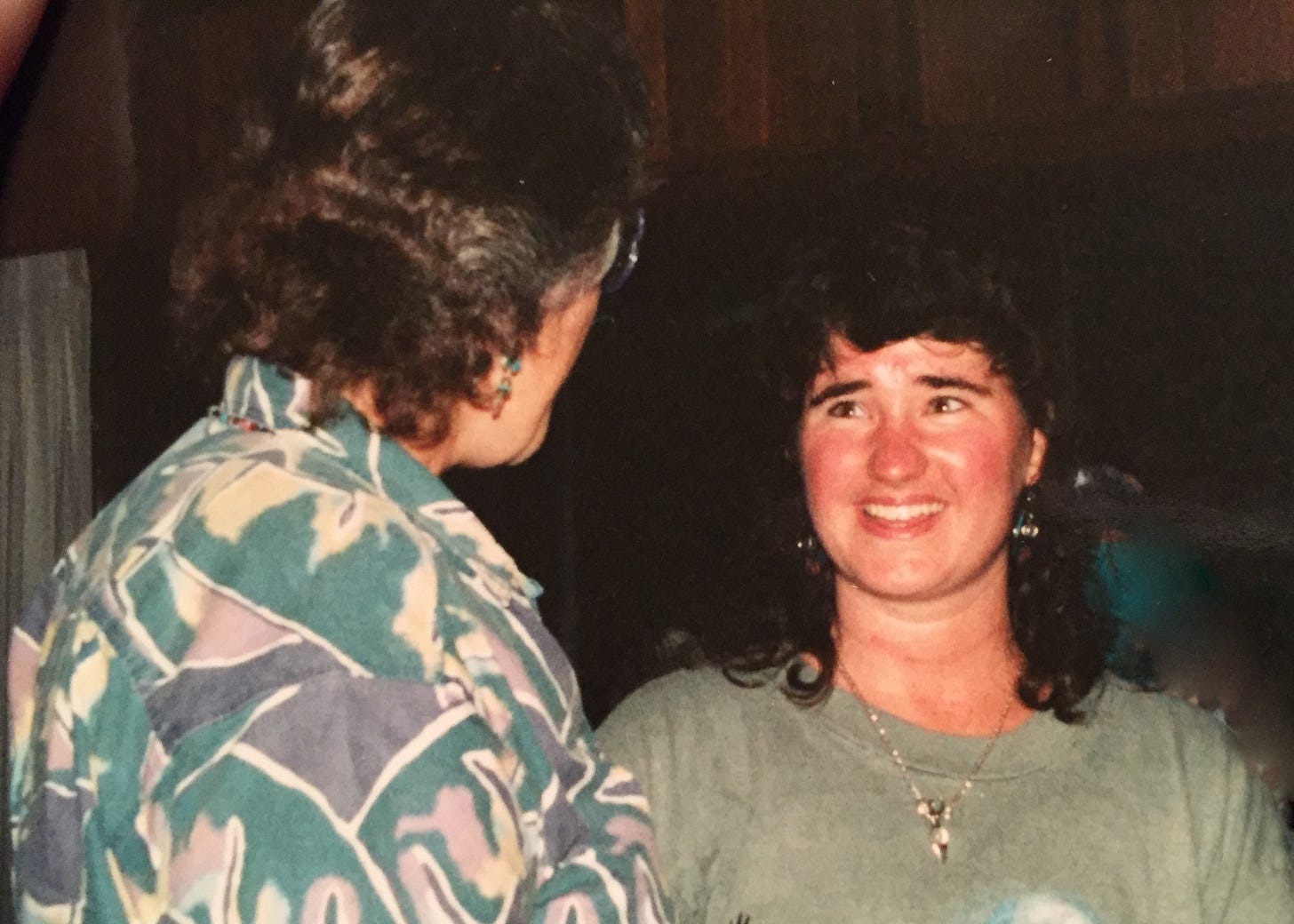The mentee becomes a mentor
Valerie allowed me to see myself as someone with something to offer others
Until I reached my mid-thirties, I hadn’t considered the idea that I could be a mentor to others. I had been gifted with so many incredible teachers, both in school and out, from my third, fourth, and fifth grade teacher Sister Stephen to my employer, colleague, and friend Bonnie, and I soaked up everything I could from them. But as I settled into a professional management position with a prominent healthcare system, I began to understand that as someone never shy about offering my opinion (my mother once asked me when I was only ten, “why do you have to be so bossy?”), I had learned enough in my life and my career to be able to pass it on. This usually came in formal ways such as supervision sessions with the therapists and other staff who worked for me. Through my time with them, I developed more confidence in my abilities. However, it wasn’t until my friend Susan’s daughter, Valerie, asked if she could spend a day shadowing me at work that I began to think of myself as a mentor.
I had known Valerie since she was a pre-teen, had watched her navigate high school and move on to college. It was then that Susan told me that Valerie was considering getting a masters in social work, as I had done.
When Valerie called me to ask, I remember feeling surprised. What could I offer her? In recent years, “imposter syndrome” has become a way to describe what I felt then. It’s a term often used to describe professionals who feel like they’ve faked their way to the position they currently hold, believing that they’re fundamentally incompetent and must spend a lot of energy hiding that from others. My imposter syndrome surfaced in a litany of questions that arose as I navigated a range of professional challenges. How could work in chemical dependency treatment when I wasn’t a recovering alcoholic or addict and no one in my family was either? How could I manage a million-dollar budget when I couldn’t control my own credit card debt? How could I supervise therapists when, despite years working in crisis intervention, alcoholism assessment and education services, and completing an MSW, I had never formally worked as a therapist? These questions, these insecurities, roiled around in my brain as I held the telephone to my ear.
Valerie has always been an earnest person, someone who takes things seriously and feels things deeply. She is not quick to decide something, but once she does, she is confident in her choice and pursues it with commitment. That’s why she didn’t take the decision to pursue social work as a career path lightly. She researched it, talked with people, and now she wanted to see the work in action.
I don’t remember much about her visit. I remember sitting with her in my office though, at the beginning and end of the day and doing the best I could to answer her questions. “What do social workers do here?” “Do you feel you’ve benefited from your social work education and can you apply it to your job?” Are there other professions I should consider?”
And while I don’t recall exactly how I answered her, I remember feeling invigorated by her visit. By assuming the role of mentor, I was able to integrate more of who I was as a social work professional and let go of some of the insecurities that showed up in my personal iterations of imposter syndrome.
I can’t take credit for Valerie’s decision to get an MSW or the incredible work she has done with it since. She has taken her degree much farther than I ever did and is now a mentor herself in many capacities and especially as program director and faculty for a social work program at a Chicago university. There she inspires others who are interested in forging their own variations of our paths.
By changing my perspective of myself from an apprentice to an elder, Valerie sparked a desire in me to support other young women, to offer them my time and experience, and help them develop the skills and resources they need to reach their goals. Mentoring has been one of the most satisfying parts of my professional life, and I’m especially grateful Valerie gave me the insight to see myself that way.
Next post:





And another mentee here! Took me a few years but you’re a big reason I finally returned to school for my MSW. And now, as a LCSW, I find myself working at a community-based, residential substance abuse treatment program. So interesting how all of these things circle back around. Thank you, Annette, for being MY mentor all those years ago. ❤️
And look at you now! From one of your mentees and biggest fans, you rock!